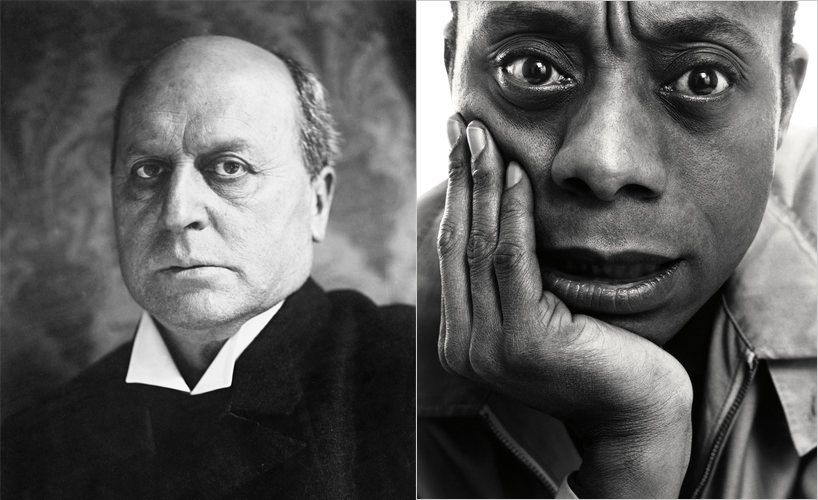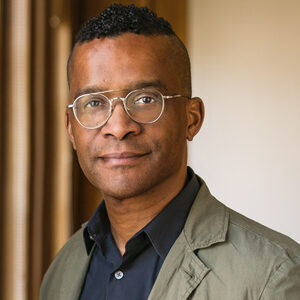James / Baldwin (Professor Stephen Best, English 190)

Professor's Welcome
 Welcome:
Welcome:
Thank you for joining this seminar. My hope is that you’ll be inspired to think more deeply about the American canon–about how race informs our sense of “American” literature, and why some works of literature are classified as “political” while others are not.
–Stephen Best
Course Description
James Baldwin made little secret of the importance of Henry James to his creative life, paying debt in complex, archly poetic sentences that drew snide dismissals from friends and rivals alike (Mailer: “even the best of his paragraphs are sprayed with perfume”). Baldwin and James certainly shared a great deal in life and art, having chosen European exile and then turned that exile into a major theme within their art. Our contemporary bias for self-disclosure might predispose us to the view that Baldwin felt he found a fellow queer writer in James; however, James’s reticence on such matters means that “queer” (if it should signify anything) names the moment when the relationship gets awkward. This class will thus explore aesthetic and political concerns these writers shared as well as queer “sensibilities” that, always deniable if not always denied, may or may not be there—the many effects, both dramatic and formal, that keep us at a loss for knowledge of our subject, i.e., reticence, renunciation, opacity, bewilderment, and belated recognition.
Monthly Readings
NOVEMBER
Reading:
For the final meeting, I would like participants to read Giovanni’s Room.
Discussion questions:
- This very memorable image appears in Baldwin’s The Fire Next Time (1963):
“A vast amount of the energy that goes into what we call the Negro problem is produced by the white man’s profound desire not to be judged by those who are not white, not to be seen as he is, and at the same time a vast amount of the white anguish is rooted in the white man’s equally profound need to be seen as he is, to be released from the tyranny of his mirror. All of us know, whether or not we are able to admit it, that mirrors can only lie, that death by drowning is all that awaits one there. It is for this reason that love is so desperately sought and so cunningly avoided.
How often do mirrors appear in Giovanni’s Room? In what ways do mirrors and reflections inflect your sense of the characters?
- Baldwin often uses the word “contempt” to describe how David relates to other people and their pain. Contempt is a strange basis for relationship–neither as magnetizing as admiration, nor as aversive as anger. How does the novel make you think and feel about contempt?
OCTOBER
Reading:
For the month of October I would like participants to read James’s The Beast in the Jungle. You can purchase a hard copy (preferable, in my view), or download one of these electronic versions:
- .epub (for use with the Books app on Macintosh, or the Calibre or Sumatra PDF apps on Windows)
- .mobi (for Kindle)
Discussion questions:
- The preterite is a rhetorical figure in which attention is drawn to something by professing to omit it; the act of passing over something without notice (e.g., “the love that dare not speak its name”). Can you find examples of preterition in the story?
- Is there one secret in The Beast in the Jungle, or many? What are they?
- Baldwin celebrated James for creating works of literature that represent the failure of Americans to see through to “the reality of others.” This makes James’s novels unique occasions for thinking about the American problem of race. In Beast in the Jungle, the main protagonist appears to screen himself off from self-knowledge. Do you think Baldwin would have seen this story as having something to do with homosexuality? Do you?
SEPTEMBER
Reading:
Please order a copy of James Baldwin’s Notes of a Native Son, or you can borrow a copy from the Internet Archive. I would ask that you read the following essays in preparation for our September meeting:
“Autobiographical Notes”
“Everybody’s Protest Novel”
“Notes of a Native Son”
“Stranger in the Village”
Also, read this interview with Baldwin (conducted with his biographer, David Leeming): interview JBaldwin on Henry James copy
Discussion questions:
- How would you describe Baldwin’s essay style? Be precise. What are the elements of his style that caught your attention?
- Does the style affect the content of what he is saying, does it inform your understanding of the political positions he takes?
- Baldwin celebrates James for his ability to draw characters who embody a “‘general failure’–the failure to touch, to see.” In each of James’s novels, the younger author avers, his predecessor “was describing a certain inability (like a frozen place somewhere), a certain inability to perceive the reality of others.” Why do you think Baldwin would see James’s greatest achievement as involving a “failure”

I got an access denied message when I tried to access teh interview.
Sorry about that! We just updated the link for public access. Thanks for letting us know.